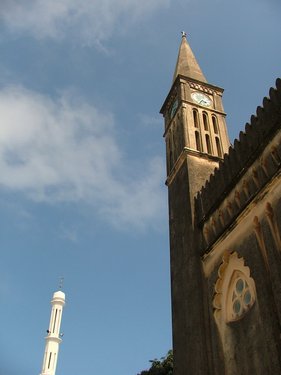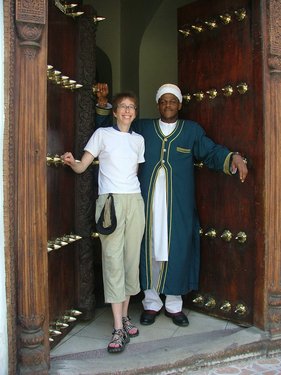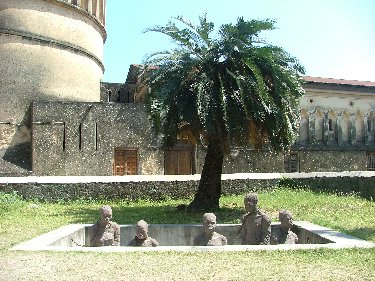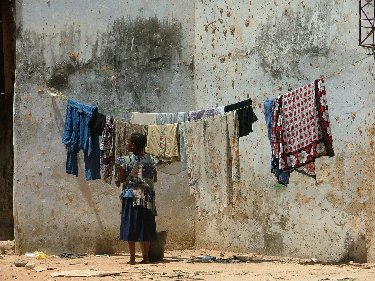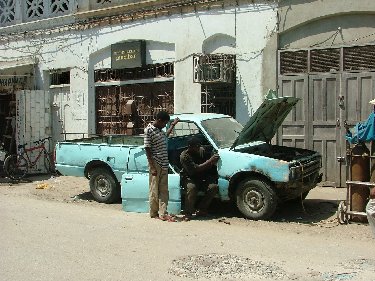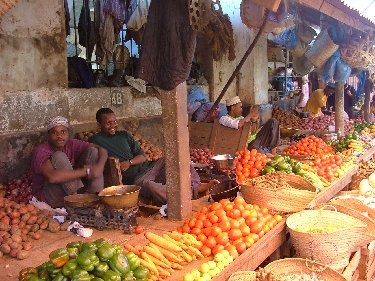|
|
WhereAreJanetandRick Zanzibar Island |
|
Stone Town
Stepping Back Into History
Stone Town was shaped by forces from ancient Persia and western India. If not for cars, bicycles and modern signs, you'd think that you stepped back thousands of years. The streets and narrow alleys wind in all directions - getting lost is the order of the day. Islam is the predominant religion in Zanzibar - most women are clad in black bui-buis and some men wear traditional attire. Mosques and a few church spires decorate the skyline and a museum exibits a stamp celebrating religious 'tolerance'.
Zanzibar Doors
Another of Stone Town's most prominent features are its doors. Many of these are oversized and have large brass studs facing outward. These doors are of either Indian or Arabic origin - the script on the door indicates which. In days of old, the large studs discouraged large animals from visiting. Today, they're purely decorative.
The Slave Market
An unfortunate part of Zanzibar's history was the slave trade. Slaves were collected from all over east Africa and sold to the Middle East and India through Zanzibar. Finally, in 1864, missionary-explorer David Livingstone convinced the 3rd Sultan of Zanzibar to close down the
slave market. Presently, St. James Anglican Cathedral stands on the site of the old slave market. The old slave chambers remain beneath the cathedral and the alter was build at the site of the whiping post. A stained glass window comemorates Livingstone's efforts and there's a
crucifix made of wood from the tree in Zambia above the site where Livingstone's heart is buried (Livingstone's body is buried in the UK, but the African people insisted that his heart remain in Africa, as his whole live was devoted to his work here). The Swedes commissioned a touching monument to the people who were subjected to this barbaric action.
Laundry
Zanzibar is a small island and Stone Town is a historic city wrestling with modern growth. There's talk of relocating people outside of the present city limits, and those who live in Stone Town use every bit of space that they can.
Car Repair
Even the street has become a car repair shop!
The Market
Stone Town has a vibrant market. Located so close to the equator, many of Tanzania plants have 2 annual growing seasons! That means lots of fresh fruits and vegetables. The market is a kalaidescope of colors and produce. There are sections for fish, meat, poultry, eggs, fruits,
vegetables, of course spices, and anything else that you can imagine!
| ||||||||||||||||||||||
